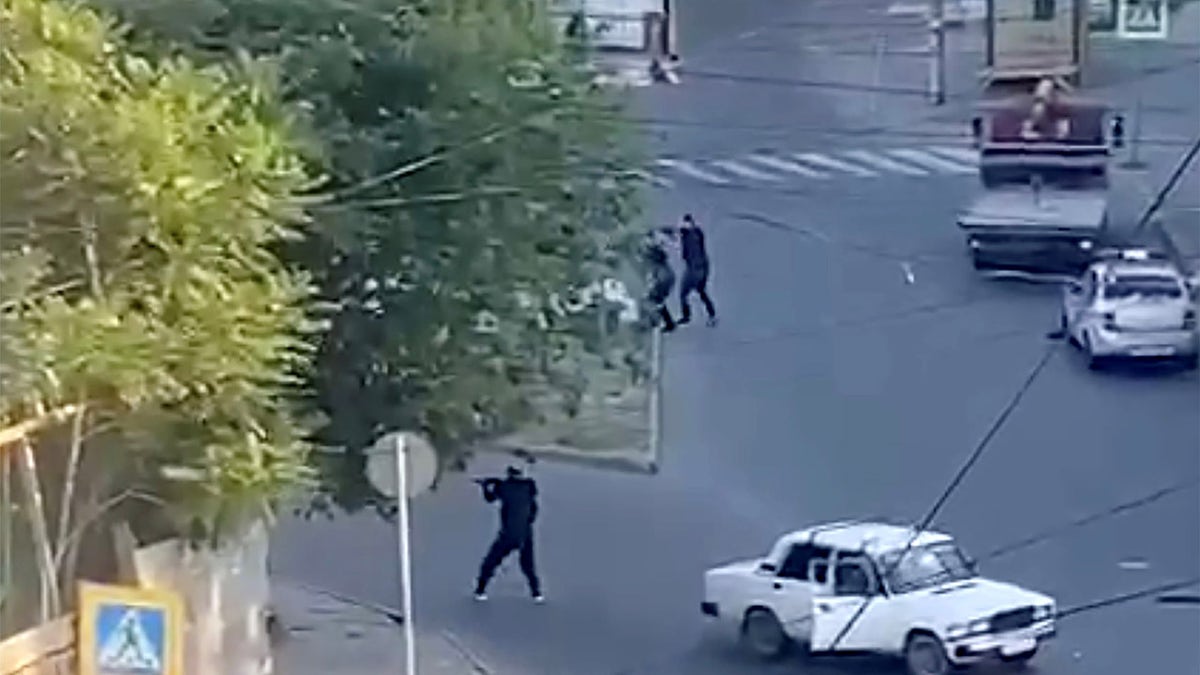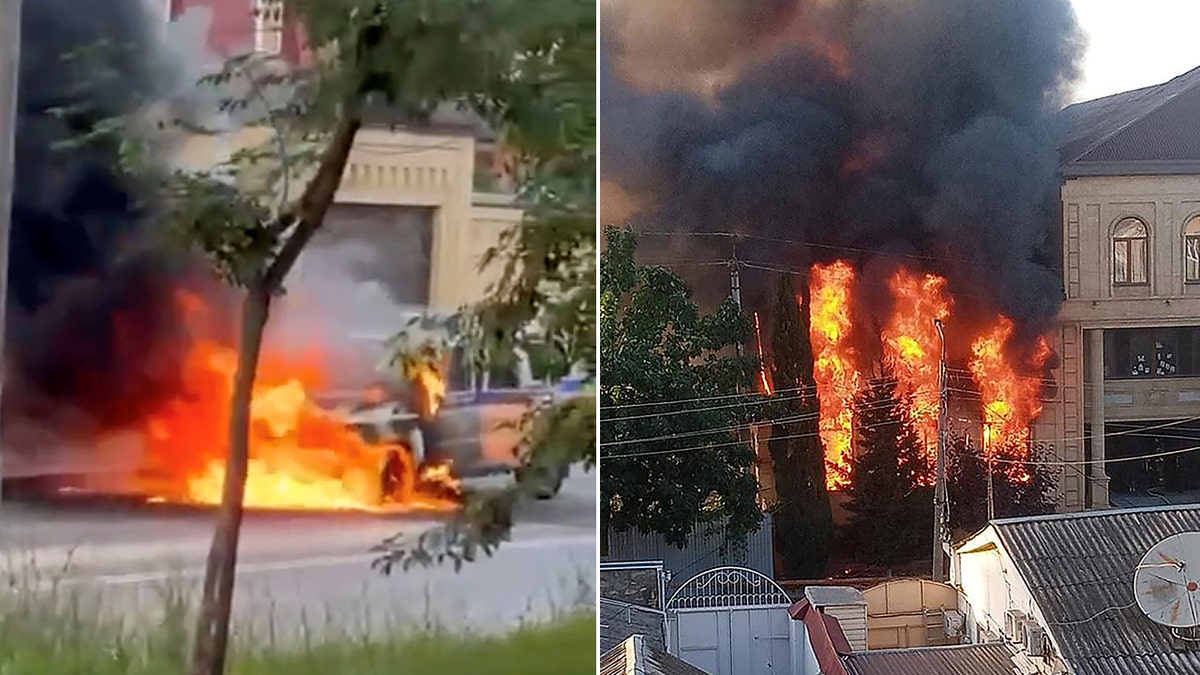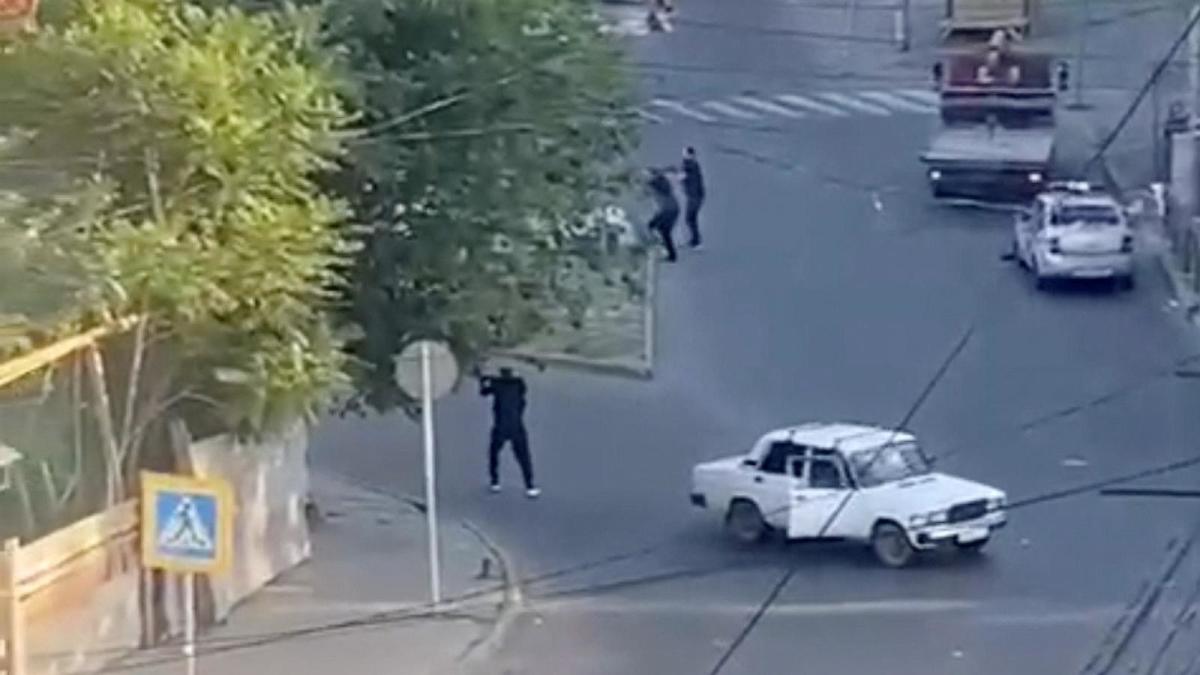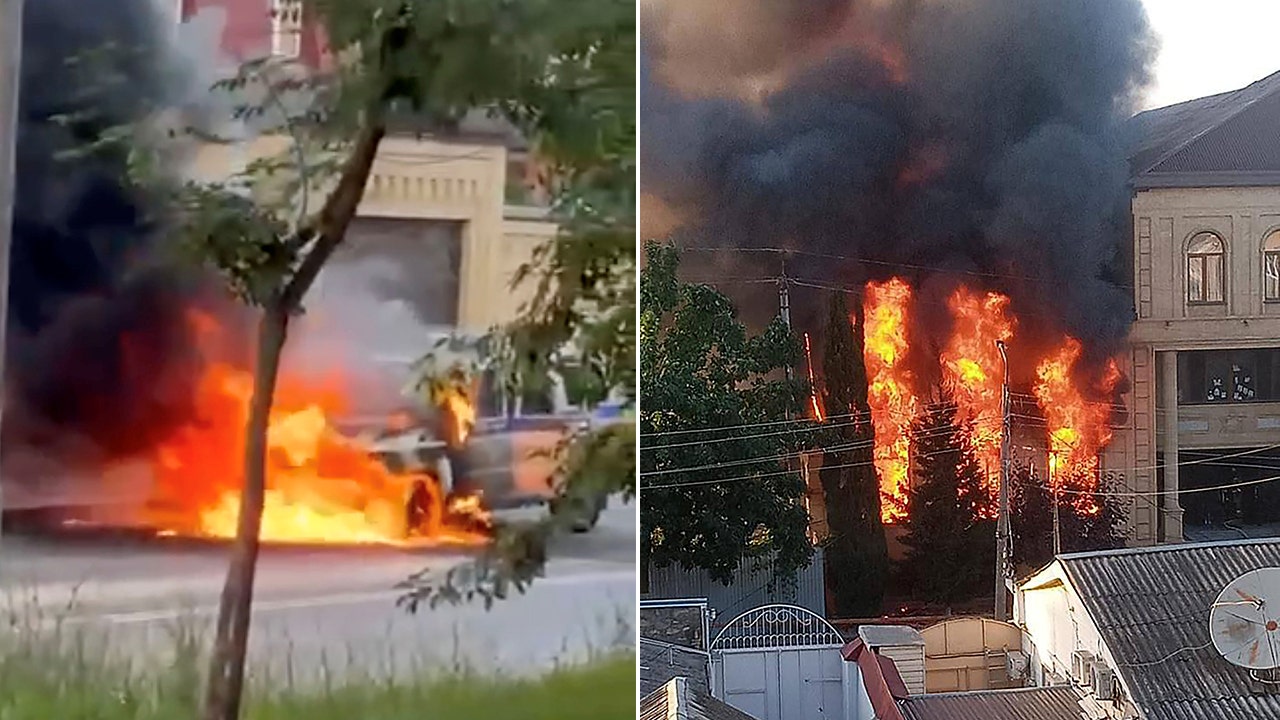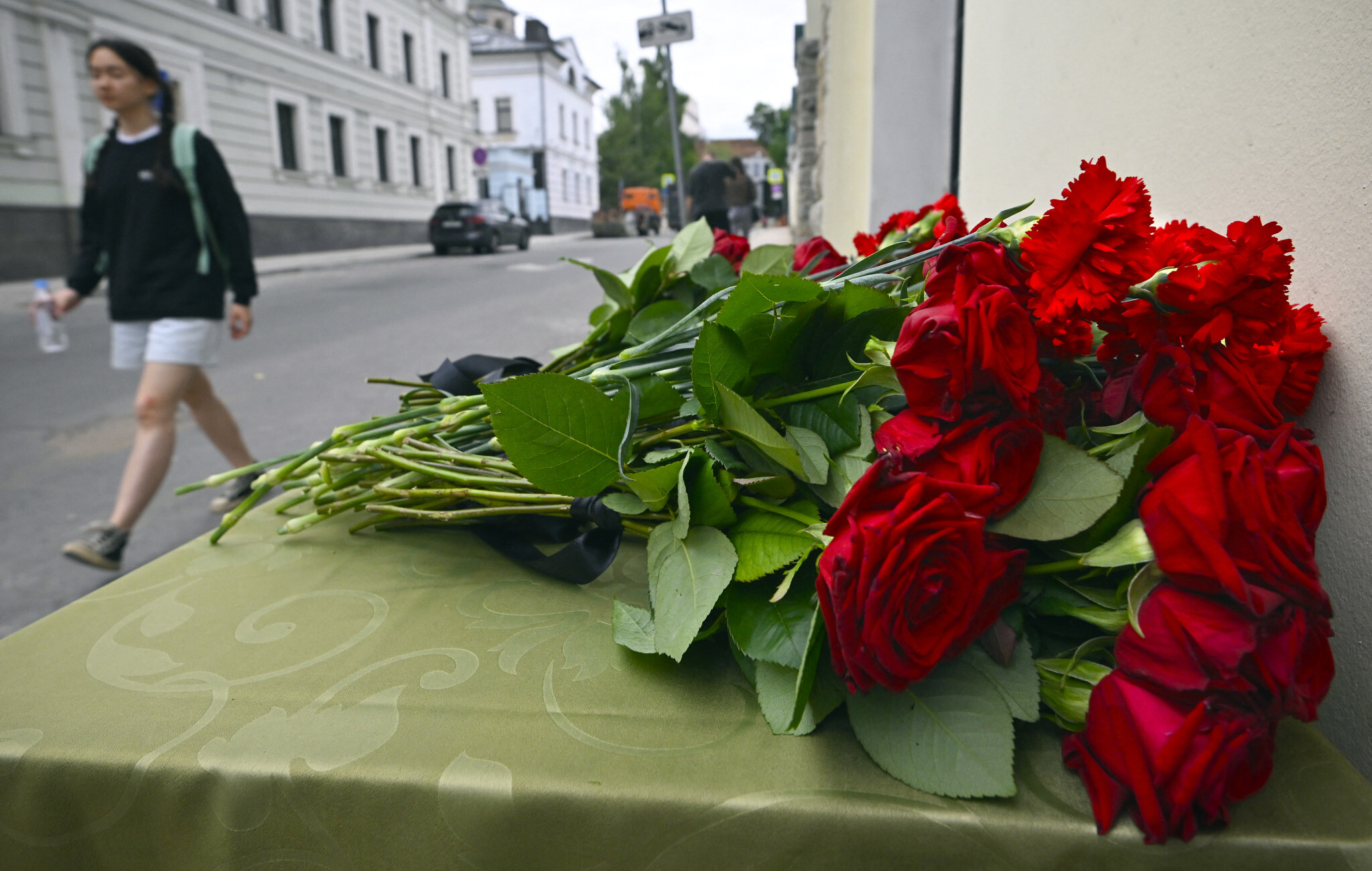
In a shocking turn of events, the death toll from attacks on churches and synagogues in Russia's Dagestan region has risen to 20 on Monday. The coordinated terrorist attacks targeted orthodox churches and a synagogue in Derbent, resulting in the killing of a priest and setting fire to an icon. At least five attackers were killed during the attacks. In Makhachkala, terrorists targeted two more synagogues and two Russian Orthodox churches, leading to one Russian Orthodox priest being killed and one church being set ablaze. The attacks have left 46 people injured, including civilians and law enforcement officials. As of now, 20 people have been confirmed dead, with the number possibly rising as more information comes to light. The attacks come amidst a period of mourning declared for Monday and Tuesday in the Dagestan region.
